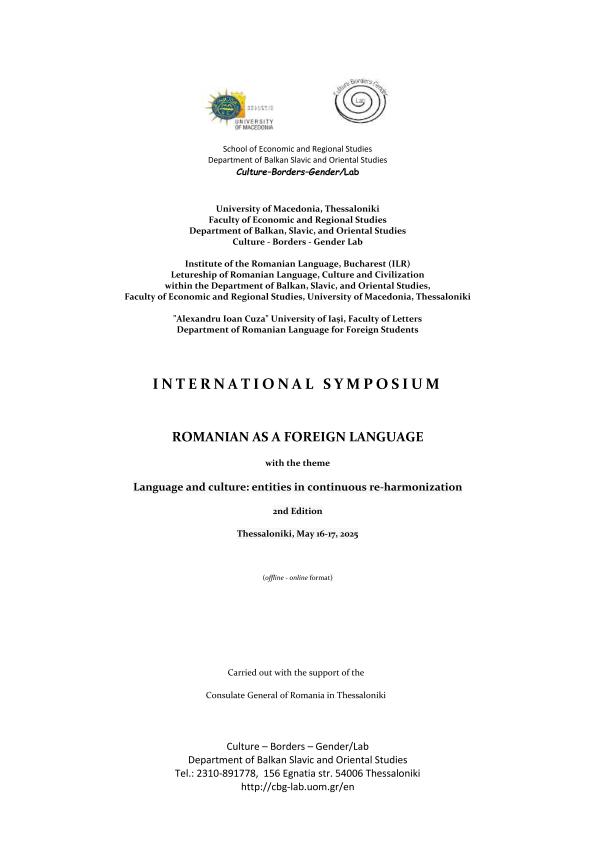
Dear Colleagues,
Dear Students,
We have the great joy and honor of welcoming you to the International Symposium “Romanian as a Foreign Language. Language and Culture: Entities in Continuous Re-Harmonization“, 2nd Edition, taking place from May 16 to 17, 2025, at the Universityof Macedonia in Thessaloniki, Greece.
This year’s event provides a space for knowledge and direct communication for international students learning the Romanian language: within the Romanian language, culture, and civilization Lectureships established by the Institute of the Romanian Language, Bucharest (ILR), at various universities worldwide, in the Preparatory Year programs, as well as in the undergraduate, master’s, and doctoral programs of universities in Romania or abroad. These students come from very diverse cultural backgrounds, from Europe, Asia, and Africa. Furthermore, the theme proposes a valuable exchange of experience among specialists, as well as the opportunity to examine the process of teaching-learning-assessment of Romanian as a foreign language, in relation to the current European level.
With the liberalization of borders and movement, and the opportunity to engage with various cultures and mentalities, people have become increasingly eager to learn as many foreign languages as possible. These languages are progressively demonstrating their role as cultural connectors, prolific means of intercultural communication, and pathways to access the global cultural and linguistic heritage.
The reality of the moment opens up to the mutual understanding of so many cultures, driven by the common desire to achieve a harmonious and coherent transcontinental dialogue. From this perspective, the use of the Romanian language emerges as one of the most desirable and useful instruments of cultural and social mediation, serving as an effective factor in addressing the new demands of the socio-human environment. Intercultural dialogue gains new perspectives, and this fact requires and stimulates the improvement of the means of mastering the mechanisms necessary for linguistic communication.
The organizers
